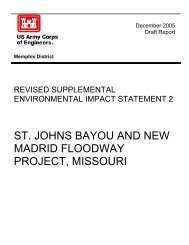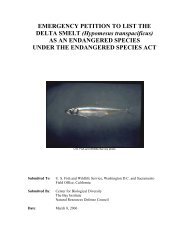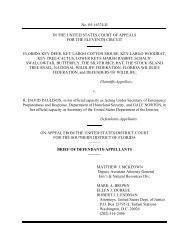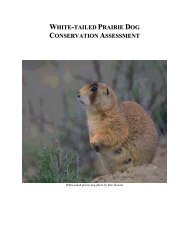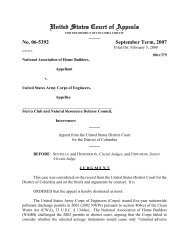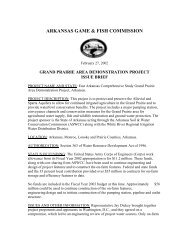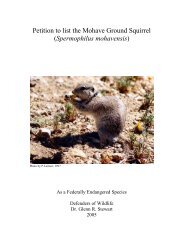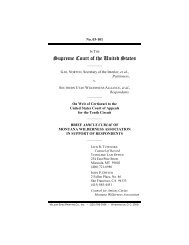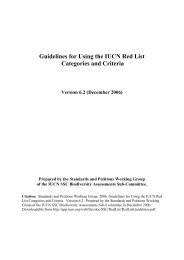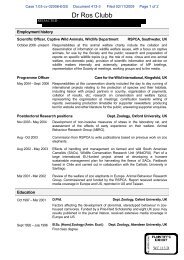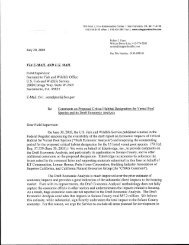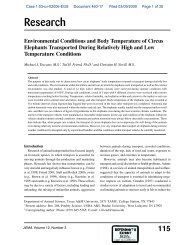WILDERNESS WATCH v. USFWS - Ninth Circuit Court of Appeals
WILDERNESS WATCH v. USFWS - Ninth Circuit Court of Appeals
WILDERNESS WATCH v. USFWS - Ninth Circuit Court of Appeals
Create successful ePaper yourself
Turn your PDF publications into a flip-book with our unique Google optimized e-Paper software.
20378 <strong>WILDERNESS</strong> <strong>WATCH</strong> v. <strong>USFWS</strong><br />
ity errs by failing to “defer to the informed discretion <strong>of</strong> the<br />
responsible federal agenc[y].” Marsh v. Or. Natural Res.<br />
Council, 490 U.S. 360, 377 (1989) (quotation marks omitted).<br />
II<br />
Ultimately, the majority concludes “the Service must provide<br />
enough evidence and explanation in the record to assure<br />
this court that it fully considered [alternative factors for the<br />
bighorn’s decline] and nevertheless rationally concluded that<br />
new water structures are, in fact, necessary.” Maj. Op. at<br />
20357. I think the Service did just that. But even if I were to<br />
agree that the record in this case is “wholly inadequate,” I<br />
would not remand this case to the district court “with instructions<br />
to determine the appropriate remedy.” Id. When both<br />
Supreme <strong>Court</strong> and circuit precedent mandate a remand to the<br />
agency for a more adequate explanation <strong>of</strong> the agency’s reasoning,<br />
an open-ended remand to the district court is but an<br />
exercise in futility. The only remedy the district court should<br />
consider is remand to the Service for further explanation. See<br />
Florida Power & Light Co. v. Lorion, 470 U.S. 729, 744<br />
(1985) (“[I]f the reviewing court simply cannot evaluate the<br />
challenged agency action on the basis <strong>of</strong> the record before it,<br />
the proper course, except in rare circumstances, is to remand<br />
to the agency for additional investigation or explanation.”);<br />
Humane Soc’y <strong>of</strong> the U.S. v. Locke, ___ F.3d ___, 2010 WL<br />
4723195, at *5 (9th Cir. Nov. 23, 2010) (holding that when<br />
the agency’s “explanation is incomplete and inadequate to<br />
permit meaningful judicial review,” the proper remedy is a<br />
remand “to afford the agency the opportunity to . . . articulate<br />
a reasoned explanation for its action”); see also Seavey v.<br />
Barnhart, 276 F.3d 1, 12 (1st Cir. 2001) (“When an agency<br />
has not considered all relevant factors in taking action, or has<br />
provided insufficient explanation for its action, the reviewing<br />
court ordinarily should remand the case to the agency.”); Public<br />
Power Council v. Johnson, 674 F.2d 791, 794 (9th Cir.<br />
1982) (“When there is a need to supplement the record to<br />
explain agency action, the preferred procedure is to remand to




